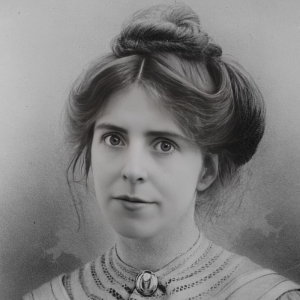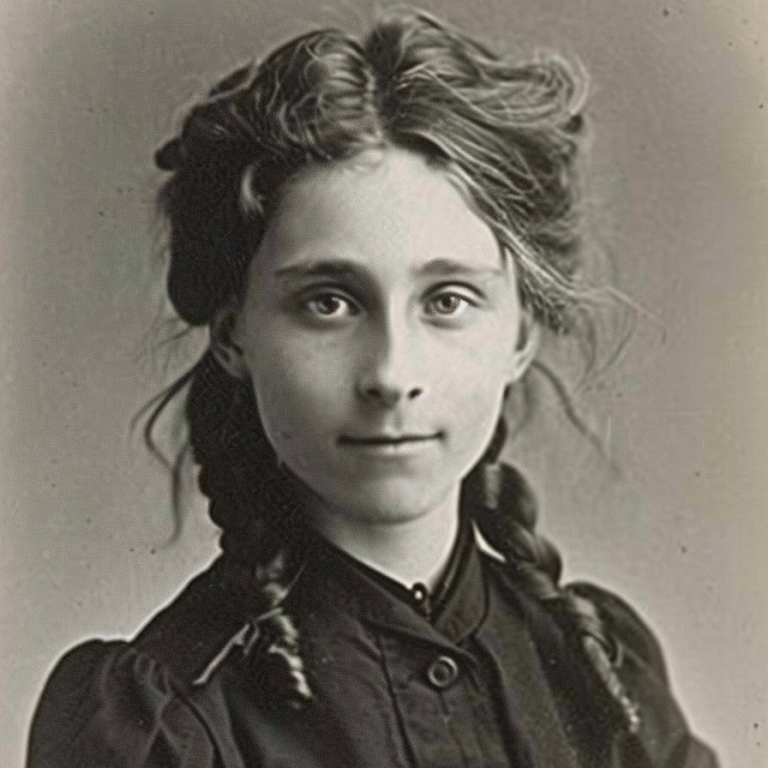Memories of a Militant

by
Annie Kenney
LONDON
EDWARD ARNOLD & CO.
1924
The reader will not get far into this volume without falling in love with Miss Annie Kenney, however strongly opposed he may have been to the Suffragette campaign. The fight is over and the angry passions roused by it have subsided, so that in a calmer atmosphere we can admire the courage, resourcefulness, and devotion to their cause of women who like Miss Kenney were ready to sacrifice everything for a principle. She and her friends possessed the qualities of which martyrs are made, and though we may laugh at the humours of the struggle, actual tragedy was never far off. Fearsome and terrible indeed to the feminine nature must have been the hostile crowds, the certain prospect of rough handling, of arrest, prosecution, imprisonment, and forcible feeding. The protagonists were no viragoes, but well-educated women from happy and comfortable homes, to whom the mere thought of making themselves conspicuous would in ordinary life have been abhorrent. Miss Kenney herself is evidently one of the kindliest folk, though her zeal knew no bounds. Probably she seemed to her opponents a dangerous fanatic, but she reveals herself in this book a true woman, tender-hearted, sympathetic, cheerful, and gaily humorous whatever happens. Her devotion to the other leaders of the Movement was unbounded, and it is interesting to read her affectionate tribute to ladies whose very names were anathema to the other side during the heat of the fray. Interesting too are the interviews she reports with statesmen of the day — Sir H. Campbell-Bannerman, Mr. Lloyd George, Lord Balfour, and Mr. Asquith — whose methods of dealing with very perplexing and novel situations differed widely.
CONTENTS
III I Leave School — The Year of my Confirmation
V Sentenced to Three Days’ Imprisonment In Strangeways Gaol.
VI My First Visit to London — The Great Liberal Rally — Thrown out of
the Albert Hall
VIII Our First Public Meeting — Caxton Hail — Mr. and Mrs. Pethick
Lawrence JOIN THE Movement
X Thrown out of the Ladies’ Gallery — I Meet Lady Constance Lytton
XIV My Visit to Germany — German Suffragists — We start a Paper
XV I VISIT Switzerland — The Pit-brow Women come to London and visit
Parliament
XVI Newton Abbot By-Election — My Fourth Arrest — A Private Interview
with Mr. Balfour
XVII The Hunger Strike — Jane Wharton
XVIII The Conciliation Bill — The Oberammergau Passion Play
XX Extreme Militancy — Christabel Pankhurst eludes Press, Police,
Parliament
XXII Internal Discord — The First Separation
FOREWORD
Believing it necessary, as I have done for a long time, that a clear description should be given, however brief, of certain but important parts of the Militant Movement for Women’s Suffrage, I have had to decide in what form I can present such a narrative to the public. I have come to the conclusion that the best way will be to write my life.
As I was one of the leading actors in the first play, so I was one of the leading actors in the last.
Mr. Robert Blatchford years ago advised me to take up writing as a profession. This idea I put right at the back of my mind until the day came when I should feel free. My life has been varied and restless, and yet underneath all the outward restlessness there is a silence that is deep and real. I have always believed that we have guardian angels, not the orthodox angel with light garments and bird-like wings, but an unseen presence which has evolved a finer and subtler body, that we with our mortal eye cannot detect, though we can sense it. This very real presence has been with me all my life. The warnings it brings, the advice it gives, the consolation it bestows, come to me more like a wireless message. The mistakes I have made in life have always been made when I have paid no heed to its unfailing wisdom.
Mine being one of the active, impulsive, intuitive temperaments of the world, I naturally was drawn to a personality like that of Christabel Pankhurst. If I have faith in a person, no arguments, no persuasion, nothing outside can shake my faith. I had faith in Christabel. It was exactly the faith of a child — it knows but it cannot explain. What path of life my feet would have trod had it not been for Robert Blatchford and Christabel, who knows? The political parties as constituted to-day would never have appealed to me — they are too petty, too contentious. Few of their leaders have the grand passions of life that sweep all before them and abandon themselves to a big idea. Storms, surging floods, wind-swept moors, lightning and terrific thunder, in fact the militancy of nature, rouse within me emotions that in themselves are enough to sweep me away in their surging streams, and yet, as though to save me, deep down there is always the great stillness. A passionate and a big personality alone appealed to me. A Militant Movement alone could satisfy such a tempestuous nature as mine. That is why I can say with real honesty that I alone know what Christabel Pankhurst and the Militant Movement did for me. Whatever phase of life I have touched I have felt I knew it. I have always said that there is just one little secret spring somewhere hidden in my being. Once that spring snaps I shall behold the splendour of heaven and also understand the terrific suffering of the underworld.
The Women’s Movement appealed to the best and the highest within me. I met some of the finest characters of the world while engaged in it. The experience gained, the sacrifices made, the labours done, all for a big ideal, were the finest school for the building up of those qualities which I needed to strengthen and evolve me as a human soul upon Life’s path. Just as the coral reef is the work of millions of polypi, so the structure of our Movement was the work of thousands of women, who laboured silently, alone, and unacknowledged. I had the honour, the joy, of working with them at brief periods, of suffering with them at others.
No companionship can ever surpass the companionship of the Militants during the childhood and youth of the Suffrage fight. In humility of spirit, fully conscious of the debt I owe them, I dedicate my book to “The Unknown Warriors of the Women’s Bloodless Revolution.”
A. K. July, 1924.